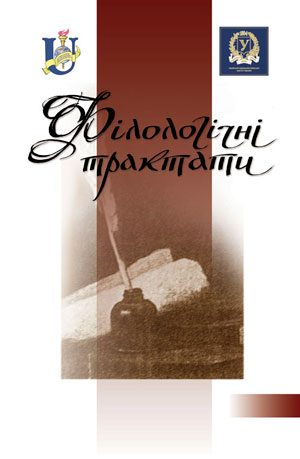THOMAS NASHE IS NOT A SATIRIST: THE IMAGE OF “THE BLACK DEATH” IN HIS POETRY
Keywords:
Thomas Nashe, Summer’s Last Will and Testament, “triptych about the Black death”, poetry, drama, plagueAbstract
The authors of this article focus on poetics of “triptych about the Black death”, which is included in the play “Summer’s Last Will and Testament” (1592) written by the Elizabethan writer Thomas Nashe. As this writer is well-known to modern literary scholars mostly as a talented satirist, the author of a novel and numerous pamphlets, the attention to his poetic heritage is nowadays surprisingly relevant from the view point of their thematic vector and from the viewpoint of the author’s contribution into the development of the Elizabethan poetic tradition. The three poems about the London plague of 1592-1594 forced T. Nashe to change both his lifestyle and concepts of his fiction. Faced with inevitable illness and death, the writer demonstrated his imagination about plague in poems that enrich the fictional structure of drama. Being united by the ideas of the life transience and the fear of death, the author’s psycho-emotional state and his contemporaries’ universal vision of the medical disaster are manifested in different ways. In this article, there is also an attempt to find out the ideological and fictional specificity of the poems and their correlation with the structural and compositional organization of the play, as well as to define so-called theatricality as an artistic feature of drama. Some unfamiliar facts from the author’s life and socio-cultural context are also placed in the given article. Having analyzed the poems, the authors of the research came to conclusion that their uniqueness lies in the following: in his first drama Nashe represented his first poems, moreover, for the first time in the Late Renaissance literature, they were devoted to the Black death. This artistic achievement differs Th. Nashe from contemporary men-of-letter. Thanks to these poems, Nashe can be henceworth considered not only a great satirist, but also as a talented poet of the Elizabethan age.References
Привалова Л. П. Основные жанровые особенности модификаций английского романа последней трети XVI века: диссертация … кандидата филологических наук: 10.01.01. МГУ им. М. В. Ломоносова, Днепропетровск. 1987. 214 с.
Acroyd P. London: The Biography. UK: Vintage; Reprint Edition, 2001. 880 p.
Ayrton M. Th. Nashe. The Unfortunate Traveller / [ed.by M. Ayrton]. L.: Archon Books, 1968. pp. 1-18.
Barber C.L. Shakespeare’s Festive Comedy. Cleveland-N.Y.: The World Publ. Co., 1963. 278 p.
Bradbook М.С. The Growth and Structure of Elizabethan Comedy. L.: Penguin Books, 1963. 254 p.
Chambers E.K. The Elizabethan Stage. Oxford : Clarendon Press, in 4 vol., 1923. Vol. iv., 313 p.
Geenblatt S. What Shakespeare actually wrote about the plague: [Веб-сайт]: https://www.newyorker.com/culture/cultural-comment/what-shakespeare-actually-wrote-about-the-plague (дата звернення: 07.06.2021)
Morris S. Thomas Nash and the end of the Summe:. [Веб-сайт]: http://theshakespeareblog.com/2017/09/thomas-nashe-and-the-end-of-summer/ (дата звернення: 10.06.2021).
Rabkin N. Thomas Nash. Summer’s Last Will and Testament. Drama of the English Renaissance: in 2 vol. / [ed.by Russel A. Fraser and N.Rabkin]. N. Y.-L.: Macmillan Publishing Co., Inc., Collier Macmillan Publishers, 1976. V. 2: The Stuart Period. 1976. 439 p.
Stean J.B. Introduction. Nash Th. The Unfortunate Traveller and other Works / [ed. by J.B. Stean]. L.: Penguin Books, 1985. Рр. 13–44.
Wilson F.P. The Plague in Shakespeare’s London: Oxford, Oxford University Press, 1927. 228 p.













